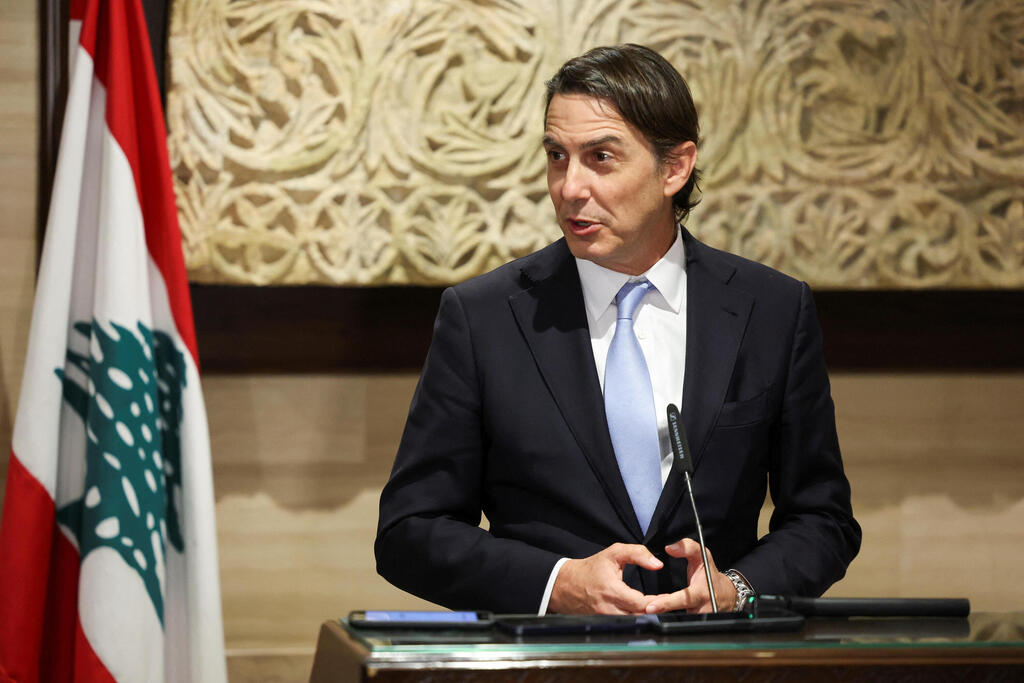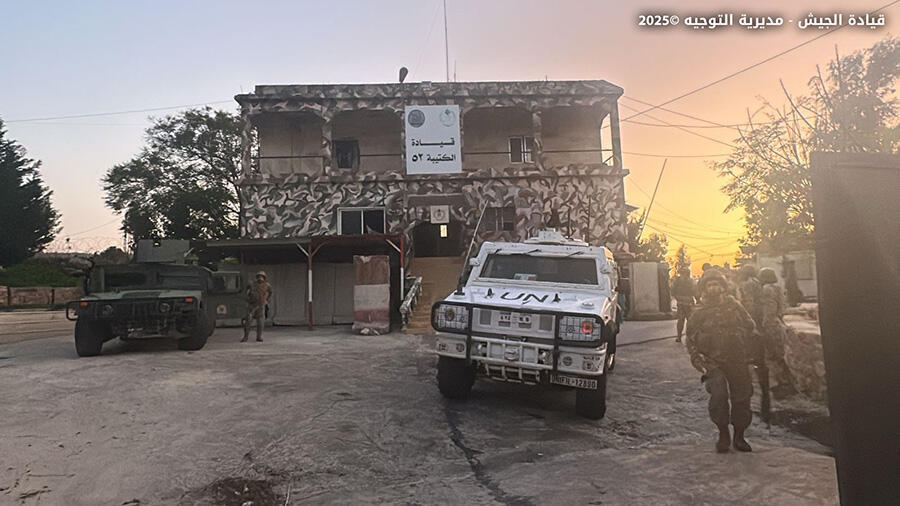The Lebanese Army announced on Monday it has begun deploying forces in the town of Naqoura in southern Lebanon. This development comes after reports in Lebanon claimed that Israeli forces have withdrawn from the area.
While IDF officials are reportedly considering extending their presence in Lebanon beyond the timeframe stipulated in the cease-fire agreement, U.S. Middle East envoy Amos Hochstein clarified during his visit to Beirut: “IDF will withdraw from all Lebanese territory.”
Lebanese forces enter Naqoura
Hochstein, following a meeting with Lebanese Speaker of Parliament Nabih Berri, stated, “IDF has begun withdrawing from Naqoura in southern Lebanon, and will withdraw from all Lebanese territory. Implementing the agreement in southern Lebanon is not easy, but we are committed to supporting the Lebanese Army.”
According to Lebanon’s LBCI news outlet, a convoy of Lebanese Army and UNIFIL (United Nations Interim Force in Lebanon) troops entered Naqoura for the first time since the cease-fire agreement was established. A subsequent statement by the Lebanese Army confirmed that its forces had taken positions around the town of Naqoura and begun deploying in coordination with UNIFIL and the Five-Nation Monitoring Committee overseeing the cease-fire. The Lebanese Army noted, “The deployment occurred simultaneously with the Israeli enemy’s withdrawal from the town.”
During Hochstein’s meeting with former Lebanese President Michel Aoun, U.S. Ambassador to Lebanon Lisa Johnson was also present. Reports from the Saudi news channel Al-Arabiya quoted Lebanese Army sources stating that Hochstein supported the Israeli withdrawal from southern Lebanon. The Lebanese Army reportedly informed Hochstein that full deployment along the border would only be possible once Israel completed its withdrawal.
According to Lebanon’s MTV news agency, Hochstein told Aoun that efforts are currently underway to facilitate the withdrawal of IDF troops from villages in southern Lebanon before the 60-day deadline expires. However, Aoun argued that the Lebanese Army’s ability to fully implement the agreement remains hindered by the continued Israeli presence in these villages.
Israeli actions raise concerns over cease-fire deadline
Meanwhile, reports from Lebanon describe ongoing Israeli military activity in the south. The Qatari newspaper The New Arab reported the IDF demolished several homes and buildings in the town of Al-Jibeen. Similarly, the Hezbollah-affiliated Lebanese newspaper Al-Akhbar claimed it had carried out bulldozing operations along Hamra Road, near a Lebanese military post, before advancing toward the village of Al-Mateet. Additionally, an Israeli Merkava tank reportedly targeted a house near the village of Ainata.
The end of this month marks the expiration of the 60-day period stipulated in the cease-fire agreement with Hezbollah for the withdrawal of Israeli forces from Lebanon. However, IDF has already stated it is not etched in stone. According to Al-Akhbar, a Lebanese military source accused Israel of gradually introducing new rules of engagement and attempting to solidify its freedom of movement as a permanent reality, even beyond the cease-fire period.
Get the Ynetnews app on your smartphone: Google Play: https://bit.ly/4eJ37pE | Apple App Store: https://bit.ly/3ZL7iNv
The source added that Lebanese military officials received indications from Jesper Jørgensen, head of the cease-fire monitoring mechanism in Lebanon, that Israel intends to extend the cease-fire period from 60 to 90 days. This extension, according to the Lebanese newspaper, would depend on Israel achieving key objectives, including ensuring that Hezbollah is unable to initiate attacks.
Israeli military officials are currently considering the possibility of remaining in Lebanon beyond the cease-fire deadline. However, no final decision has been made. IDF is preparing for this option, explaining that the decision depends on Lebanon’s actions and whether its military can establish full control over southern Lebanon.
Israel is hopeful that the U.S. will understand their position, emphasizing that withdrawing on time without Lebanon meeting its obligations would be problematic. It is likely the incoming Trump administration will work to prevent the collapse of the cease-fire arrangement.






